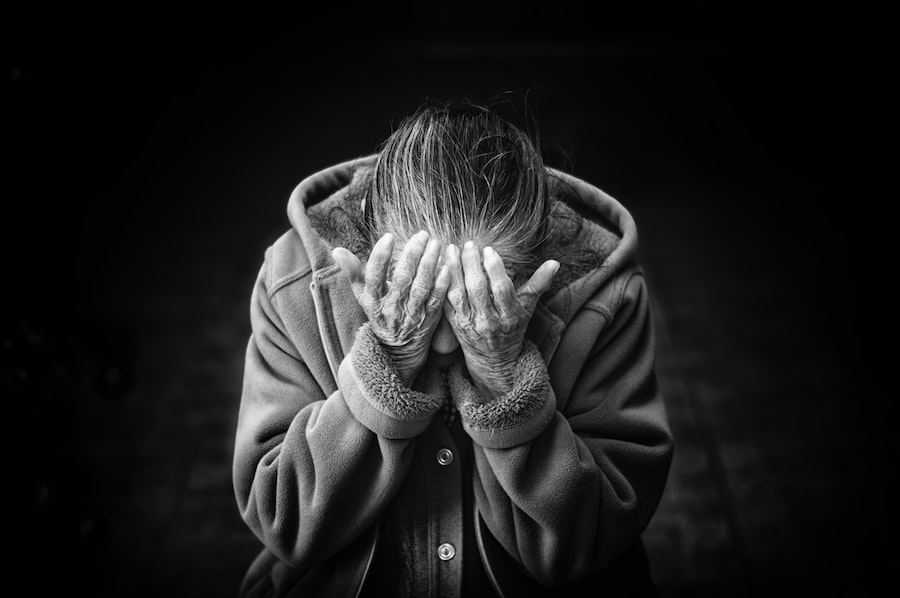Anxiety and depression are two of the most common mental health disorders, affecting millions of people worldwide. These conditions can have a significant impact on a person’s daily life, making it difficult to function and enjoy activities they once loved. Seeking treatment for anxiety and depression is crucial in order to improve overall well-being and quality of life.
Understanding the Stigma Surrounding Anxiety and Depression
Unfortunately, there is still a significant stigma surrounding mental health issues, including anxiety and depression. Many people hold misconceptions about these conditions, believing that they are simply a sign of weakness or that individuals can “snap out of it” if they just try harder. This stigma can prevent individuals from seeking the help they need, as they may fear judgment or feel ashamed about their struggles.
The impact of stigma on seeking treatment cannot be overstated. When individuals feel judged or stigmatized, they may be less likely to reach out for help. This can lead to a worsening of symptoms and a decrease in overall functioning. It is important for society as a whole to work towards reducing the stigma surrounding mental health in order to encourage more people to seek treatment.
The Importance of Seeking Treatment for Anxiety and Depression
Seeking treatment for anxiety and depression is essential for several reasons. First and foremost, treatment can significantly reduce symptoms and improve overall well-being. Therapy and medication can help individuals develop coping mechanisms and strategies to manage their symptoms effectively.
Additionally, untreated anxiety and depression can have serious consequences on a person’s physical health. Chronic stress and anxiety can lead to high blood pressure, heart disease, and other physical ailments. Depression has been linked to an increased risk of suicide, as well as other mental health disorders such as substance abuse.
Cognitive Behavioral Therapy: A Proven Effective Treatment for Anxiety and Depression
Cognitive Behavioral Therapy (CBT) is a widely recognized and effective treatment for anxiety and depression. CBT focuses on identifying and changing negative thought patterns and behaviors that contribute to these conditions. By challenging and replacing negative thoughts with more positive and realistic ones, individuals can learn to manage their symptoms more effectively.
CBT works by helping individuals develop coping mechanisms and strategies to deal with anxiety and depression. It teaches individuals how to recognize and challenge negative thoughts, as well as how to develop healthier behaviors and habits. CBT has been shown to be highly effective in reducing symptoms of anxiety and depression, with success rates ranging from 50-75%.
Medication Options for Anxiety and Depression: What You Need to Know
In addition to therapy, medication can also be an effective treatment option for anxiety and depression. There are several different types of medication available, including selective serotonin reuptake inhibitors (SSRIs), serotonin-norepinephrine reuptake inhibitors (SNRIs), and benzodiazepines.
Medication works by balancing chemicals in the brain that are associated with mood regulation. SSRIs and SNRIs are commonly prescribed for anxiety and depression, as they help increase the availability of serotonin in the brain. Benzodiazepines are typically prescribed for short-term relief of anxiety symptoms.
It is important to note that medication is not a cure-all for anxiety and depression. It should be used in conjunction with therapy and other self-care strategies. Additionally, medication may have potential side effects, such as nausea, dizziness, or changes in appetite or sleep patterns. It is important to work closely with a healthcare provider to find the right medication and dosage for your specific needs.
Mindfulness-Based Therapy: A Holistic Approach to Treating Anxiety and Depression

Mindfulness-based therapy is a holistic approach to treating anxiety and depression that focuses on being present in the moment and accepting one’s thoughts and feelings without judgment. This type of therapy incorporates mindfulness meditation practices, as well as other techniques such as deep breathing and body scans.
Mindfulness-based therapy works by helping individuals develop a greater awareness of their thoughts and emotions, and learning to respond to them in a more compassionate and non-judgmental way. It has been shown to be effective in reducing symptoms of anxiety and depression, with success rates ranging from 40-60%.
The Role of Exercise and Nutrition in Managing Anxiety and Depression
Exercise and nutrition play a crucial role in managing anxiety and depression. Regular physical activity has been shown to reduce symptoms of anxiety and depression by increasing the production of endorphins, which are natural mood boosters. Exercise also helps improve sleep, increase energy levels, and reduce stress.
In addition to exercise, nutrition also plays a key role in mental health. A diet rich in fruits, vegetables, whole grains, lean proteins, and healthy fats can help support brain health and reduce symptoms of anxiety and depression. On the other hand, a diet high in processed foods, sugar, and unhealthy fats can contribute to inflammation and worsen symptoms.
It is important to incorporate exercise and nutrition into your treatment plan for anxiety and depression. Start by finding activities you enjoy, such as walking, swimming, or yoga, and aim for at least 30 minutes of moderate-intensity exercise most days of the week. When it comes to nutrition, focus on eating a balanced diet that includes a variety of nutrient-dense foods.
Alternative Therapies for Anxiety and Depression: Exploring Your Options
In addition to traditional therapy approaches, there are also alternative therapies that can be effective in treating anxiety and depression. These therapies include acupuncture, massage therapy, art therapy, music therapy, and animal-assisted therapy.
Alternative therapies can provide individuals with additional tools and strategies for managing their symptoms. For example, acupuncture has been shown to help reduce anxiety by promoting relaxation and reducing stress hormones. Art therapy allows individuals to express their emotions and thoughts through creative outlets, which can be therapeutic and healing.
When considering alternative therapies, it is important to do your research and find a reputable practitioner. Look for practitioners who are licensed or certified in their respective fields and have experience working with individuals with anxiety and depression. It is also important to communicate with your healthcare provider about any alternative therapies you are considering, as they can provide guidance and ensure that they are safe and appropriate for your specific needs.
Overcoming Barriers to Treatment: Addressing Fear and Shame
There are several common barriers that can prevent individuals from seeking treatment for anxiety and depression. Fear and shame are two of the most common barriers, as individuals may fear judgment or feel ashamed about their struggles. It is important to remember that seeking help is a sign of strength, not weakness, and that there is no shame in asking for support.
To overcome fear and shame, it can be helpful to educate yourself about anxiety and depression and understand that these conditions are common and treatable. Reach out to trusted friends or family members for support, and consider joining a support group where you can connect with others who are going through similar experiences.
The Benefits of Group Therapy for Anxiety and Depression
Group therapy can be a valuable treatment option for individuals with anxiety and depression. Group therapy provides a supportive environment where individuals can share their experiences, learn from others, and gain valuable insights and perspectives. It can also help reduce feelings of isolation and provide a sense of belonging.
In addition to the emotional support, group therapy also provides opportunities for individuals to practice new skills and receive feedback from others. This can be particularly helpful in learning how to manage anxiety symptoms or challenge negative thought patterns.
To find a group therapy program, start by asking your healthcare provider for recommendations. You can also search online or reach out to local mental health organizations for resources in your area.
Finding the Right Treatment Plan: Working with Your Healthcare Provider
Finding the right treatment plan for anxiety and depression is a collaborative process that involves working closely with a healthcare provider. It is important to find a provider who specializes in mental health and has experience treating anxiety and depression.
When searching for a healthcare provider, consider asking for recommendations from friends, family, or other trusted individuals. You can also search online directories or contact your insurance company for a list of providers in your network.
Once you have found a provider, it is important to communicate openly and honestly about your symptoms, concerns, and treatment goals. Be prepared to ask questions and advocate for yourself. Remember that you are an active participant in your treatment plan and have the right to be involved in decision-making.
Seeking treatment for anxiety and depression is crucial for improving overall well-being and quality of life. There are several effective treatment options available, including therapy, medication, mindfulness-based therapy, exercise, nutrition, alternative therapies, and group therapy. It is important to overcome barriers such as fear and shame and work closely with a healthcare provider to find the right treatment plan for your specific needs. Remember that seeking help is a sign of strength, and there is no shame in asking for support.

Dr. Blair Steel is a licensed clinical psychologist working in the field for twelve years. She went to college in New York City before moving to Southern California and completing her graduate work. She has worked in various roles in treatment, including being a therapist, group facilitator, working in administration, and writing curriculum. Dr. Blair Steel is passionate about addiction and individual and family therapy and continues to love her work in both private practice and treatment centers.
